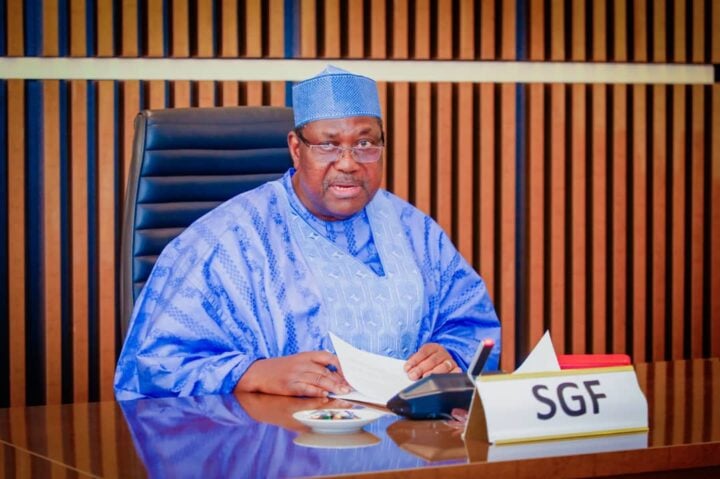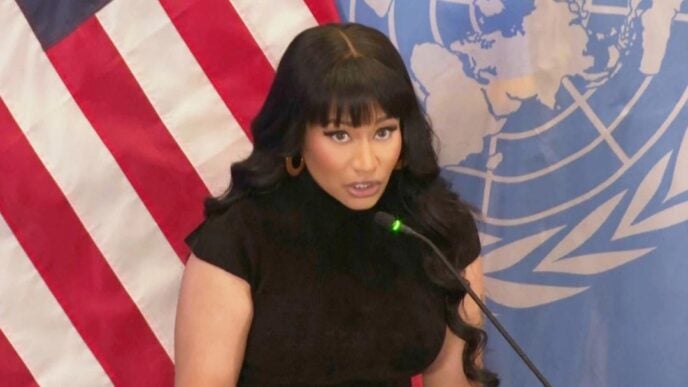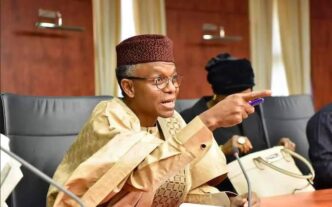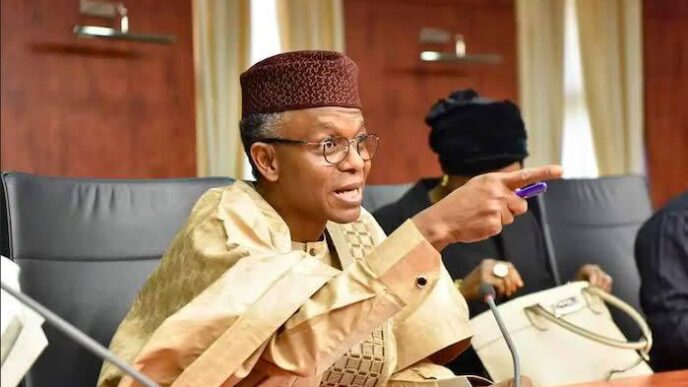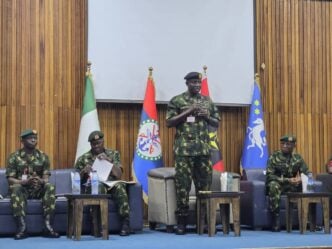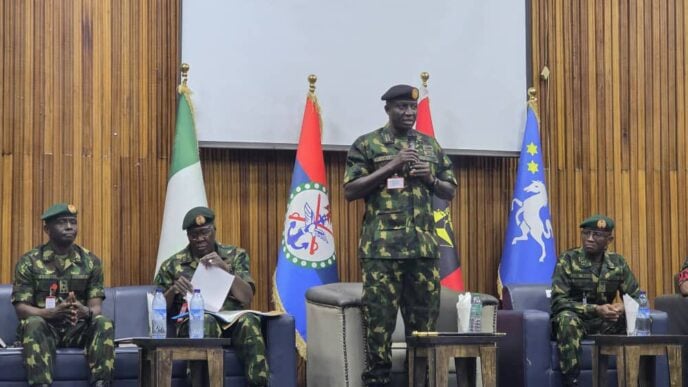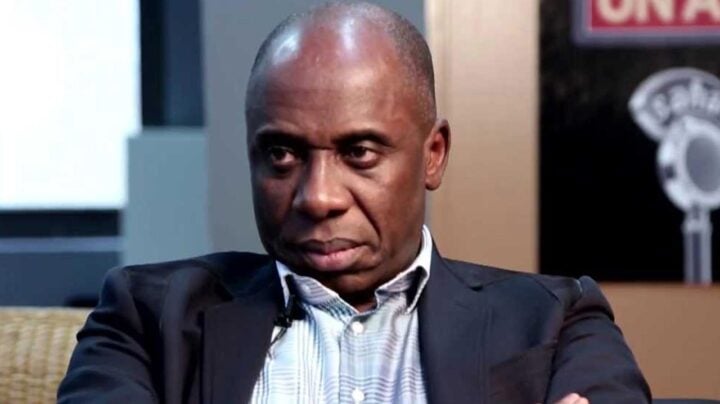George Akume, secretary to the government of the federation (SGF), says recent statements by US President Donald Trump concerning the security situation in Nigeria have emboldened violent groups seeking to exploit international narratives to launch fresh attacks across the country.
Trump recently tagged Nigeria as a “country of particular concern” and accused the federal government of turning a blind eye to attacks on Christians.
Akume spoke in Abuja on Wednesday at a press briefing called to highlight the evolution of violent extremism, the Boko Haram and ISWAP insurgency, and banditry in the north region of the country.
The SGF said insurgency has evolved on two major fronts—the north-east ideological extremism linked to global terrorist networks and the north-west crisis driven “purely by economic incentives”, including illegal mining, cattle rustling, extortion and kidnapping-for-ransom.
Advertisement
He said adherents of Islam and Christianity have been “equally victimised”, adding that no credible international organisation has ever designated the crisis as genocide against Christians.
“No credible international institution has designated the crisis as genocide against Christians. Boko Haram and ISWAP attack both churches and mosques, killing Muslims and Christians alike,” he said.
He said bandits have also targeted all communities without religious distinction, insisting the crisis is being misrepresented by groups attempting to stir sectarian tensions in the country.
Advertisement
Akume linked part of the current insecurity to weapons proliferation across the Sahel, following the collapse of Libya and instability in Egypt after the 2011 uprisings.
He said prior to 2010, Nigeria lacked the legal framework to combat terrorism until the enactment of the Terrorism Prevention Act after the Independence Day bombing by Henry Okah.
He provided a historical outline of the insurgency from Boko Haram’s emergence in 2002 under the late Mohammed Yusuf, its escalation under Abubakar Shekau, and its transition into ISWAP after pledging allegiance to ISIS in 2015.
Akume also said banditry in the north-west is driven by competition over land and water resources, illegal mining, cattle rustling, and the transformation of kidnapping into “an organised industry”.
Advertisement
He cited the June 2025 attack in Yelewata, Guma LGA of Benue, where at least 100 people were killed, as one of the recent mass-casualty incidents requiring federal intervention.
He said the armed forces remain “highly capable, experienced and professional”, adding that Nigeria does not require foreign troops but needs targeted support in intelligence, technology and equipment.
“Recent pronouncements from the United States have inadvertently emboldened opportunistic violent groups seeking to exploit international narratives and make bold statements by attacking soft targets,” he said.
Akume said insurgent structures had been significantly degraded before those comments, adding that the resurgence shows the need for collaboration rather than “public labelling”.
Advertisement
He said the government rejects any claim that the conflict amounts to the genocide of any group and remains committed to protecting all citizens regardless of religion.
Akume added that Nigeria, as a secular state, reflects its diversity in federal appointments, including within the security council.
Advertisement
He outlined the next steps, including strengthening nationwide security operations, deepening intelligence-sharing with the US and allies, intensifying efforts against illegal mining, and enhancing border security.
He said Nigeria and the US, as the largest democracies in Africa and the world, respectively, share a responsibility to maintain global stability and confront extremist threats.
Advertisement
“Now is the time to speak with one strong and united voice to confront a common enemy—the terrorists, bandits and extremist insurgents—and eradicate them from our national borders,” he added.
Advertisement
